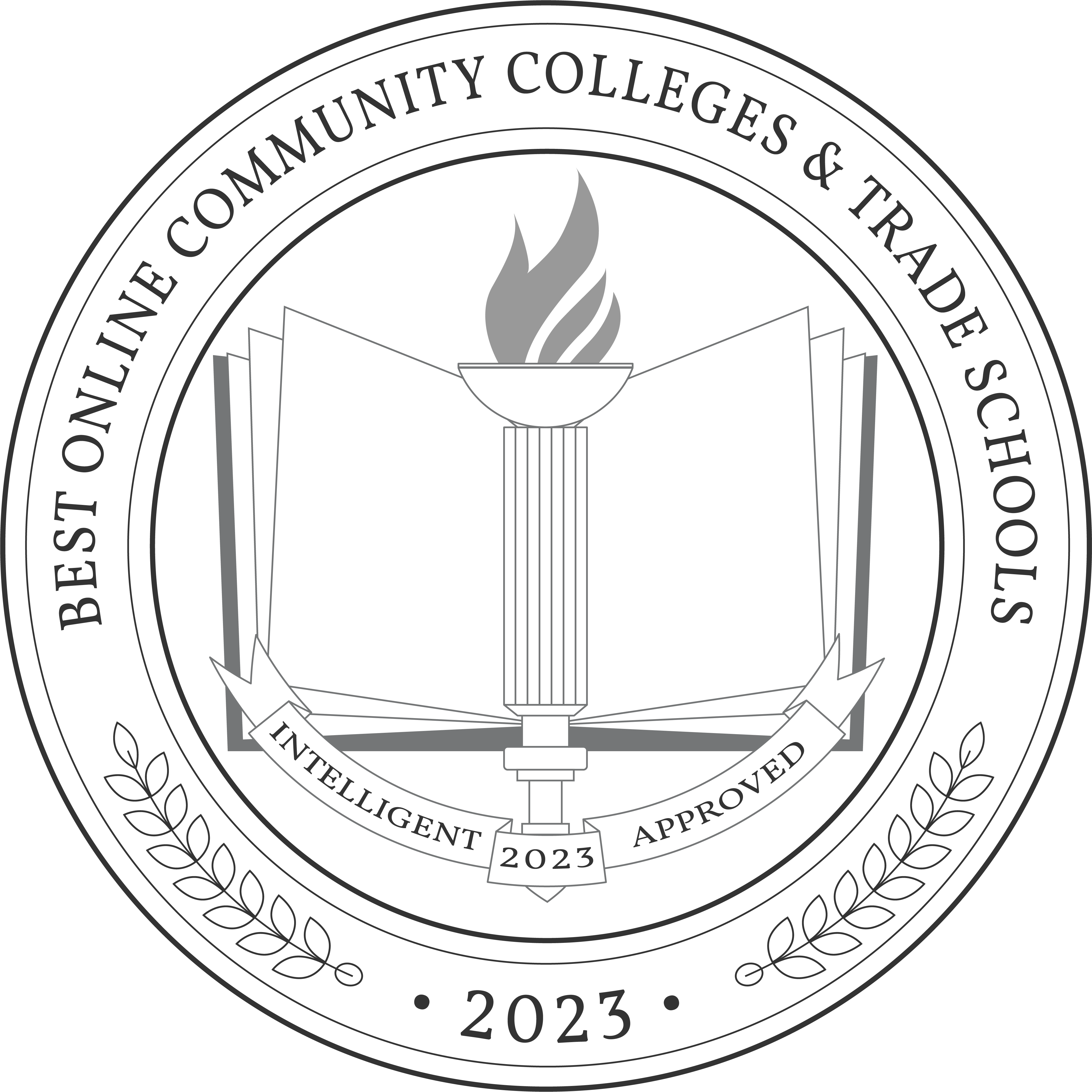Why This Matters
-
JOBS REQUIRING A CERTIFICATE TO RISE 11.5%
According to the Bureau of Labor Statistics, the number of jobs requiring a postsecondary non-degree award will increase 11.5% by 2024. Associate degree jobs will increase by 8.7% in the same time frame.
-
YOU COULD SAVE $6,570 PER YEAR ON TUITION
The average annual tuition at a public four-year institution is $10,230 per year, according to the American Association of Community Colleges. Comparatively, annual tuition at public community colleges is just $3,600.
-
INCREASE YOUR EARNING POTENTIAL BY $16,730
Individuals with an associate degree earn an average annual salary of $52,830. By comparison, the average yearly salary for individuals whose highest education level is a high school diploma is $36,100.
Our Research
Community colleges primarily offer associate degrees and postsecondary certificate and diploma programs. However, in certain states, community colleges are also allowed to award bachelor’s degrees. This list includes schools that award bachelor’s as well as associate degrees.
We specifically reviewed the online offerings at community colleges, although many schools also offer in-person programs. Some of the courses at these institutions are hybrids, meaning they mix in-person and online learning. Some programs may also have in-person requirements for experiential learning, like internships or clinical residencies.
All of the schools on our list are regionally accredited. Certain programs may also have programmatic accreditation from specialized accrediting bodies.
We evaluated the schools’ online offerings based on cost, flexibility, reputation, and faculty. We gave each school an Intelligent Score on a scale of 0 to 100. For a more extensive explanation, check out Our Ranking Methodology.
- 67 hours to write this article
- 286 universities and colleges we assessed
- 333 education programs we compared
The Top 59 Online Community Colleges & Trade Schools

Discover More Options
What You Should Know About This Degree
Community colleges attract all kinds of students. They are ideal for students who want to enter careers that require an associate degree or are completing general education coursework before transferring to a four-year institution for a bachelor’s degree. Many individuals with established careers may attend community college to complete certificate or diploma programs to acquire new skills to advance in their field. Completing these courses online offers even greater flexibility and affordability.
If you are attending an online community college with the intention of transferring to another institution, you should confirm that the school is regionally accredited and find out which schools they have articulation agreements with. This will facilitate your application and transfer process when you’re ready to switch institutions.
Although in theory you can earn an online degree from anywhere, there are some restrictions on how distance education is provided. Before enrolling in a program, check with the National Council of State Authorization of Reciprocity Agreements to confirm that your school is authorized to grant degrees to students in your home state. Also, because community colleges are intended to specifically serve the community where they are located, tuition is typically lower for local students versus out-of-state students. This may apply even in online programs, so take a close look at tuition rates before enrolling.
What’s Next?
Here are some questions to ask when researching Online Community Colleges:
- How does the school support online students? Online students need academic and career support just like on-campus students. Find out what type of access online students have to advising, libraries, tutoring, technical support, and career services. Also, talk to your program of interest regarding faculty accessibility, so you know how to interact with and get support from your instructors.
- How are courses delivered? This will vary by program and school, but generally, online courses are delivered in synchronous or asynchronous format. Scheduling for synchronous classes is more rigid, but you get more interaction with instructors and peers. Asynchronous classes are more flexible, but more of your learning is self-guided. Think about what style works best for you when selecting a program.
Research admissions and financial aid requirements as part of your community college search process. This information is typically available on the school’s website, or you can contact their admissions and financial aid departments. If you are currently employed, talk to your employer about tuition assistance benefits.